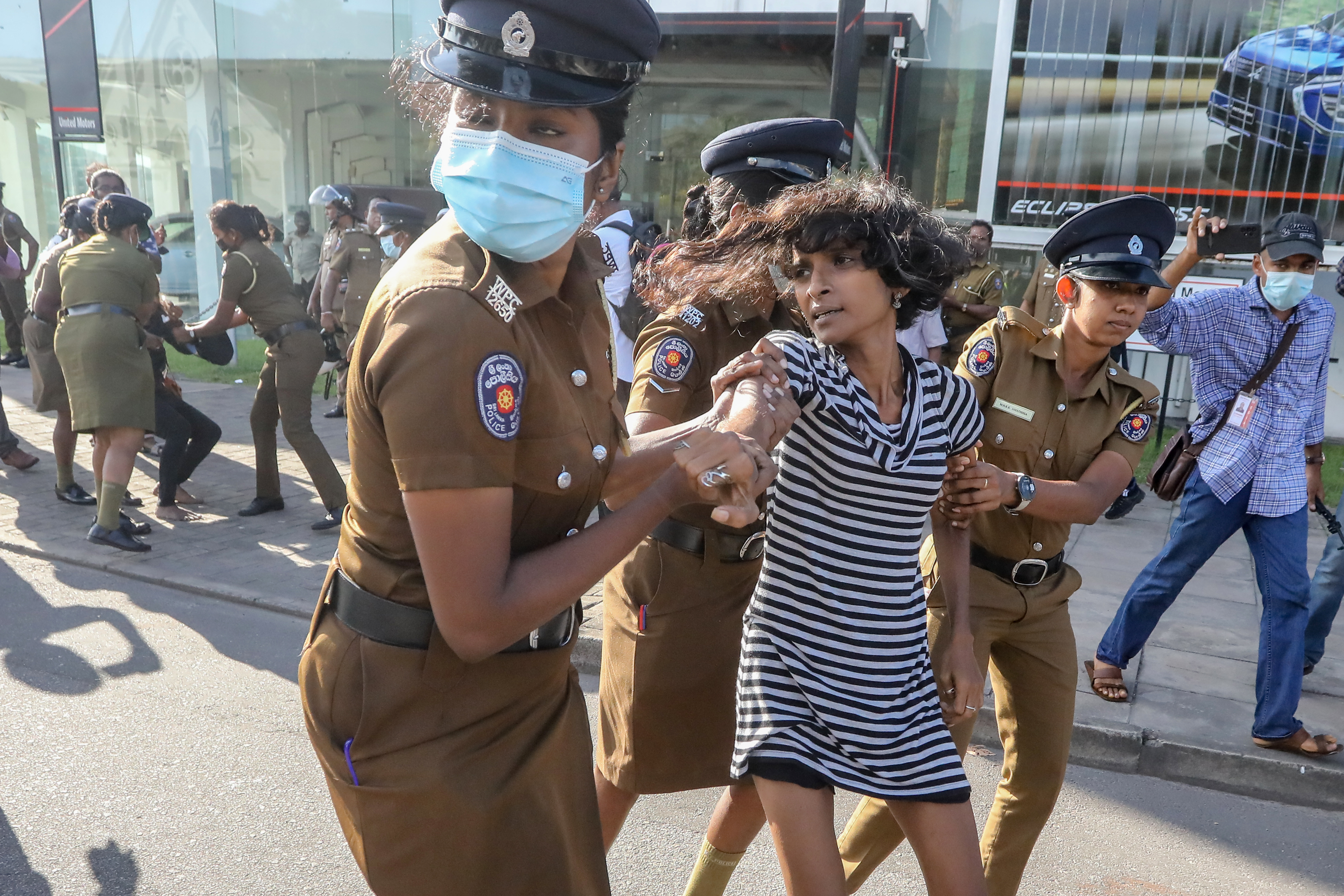
Sri Lanka’s Parliament has passed a hastily proposed bill to regulate online content, sparking criticism from rights groups and opposition politicians that the government is trying to crack down on dissent and stifle freedom of speech ahead of parliamentary and presidential elections this year.
The measure was passed on Wednesday by a 108-62 vote, the speaker announced.
Under the Online Safety Bill, content creators deemed to be posting “illegal” material by a five-member commission will be punished with jail sentences. It also holds companies such as Google, Facebook and X accountable for content posted on their platforms.
President Ranil Wickremesinghe’s government said the bill, presented to the legislature just one day before Wednesday’s vote, was aimed at battling cybercrimes, including child abuse, data theft and online fraud.
The country logged 8,000 cybercrimes last year, said Public Security Minister Tiran Alles, who denied the legislation would impact freedom of speech.
“It is not to suppress the media or the opposition. … Any complaint will be taken up by the commission, who will be appointed by the president, and they will decide how to act,” Alles said.
Human Rights Watch criticised the bill, warning that members of the Online Safety Commission would have arbitrary powers to “decide what online speech is ‘false’ or ‘harmful’, remove content, restrict and prohibit internet access, and prosecute individuals and organizations”.
Offenses under the bill carry hefty fines and prison sentences of up to five years, the international rights group said.
Protests
After Wednesday’s vote, a small group of activists and opposition members protested outside parliament.
Harsha de Silva, a lawmaker from the main opposition Samagi Jana Balawegaya, told parliament the legislation was “a threat to our democracy”.
“This will have a severe negative impact on expanding e-commerce in Sri Lanka, to provide jobs to our youth and help our economy, which is in desperate need of growth.”
On Tuesday, when lawmakers started debating the bill, Eran Wickramaratne, also from the Samagi Jana Balawegaya, said he did not understand why the government was in such a hurry to pass it.
“We should take more time and have a better approach to passing laws that are this significant,” he said.
The Asian Internet Coalition (AIC), which has Apple, Amazon, Google and Yahoo as members, warned that the bill was a “draconian system to stifle dissent”, and said it “could undermine the potential growth of Sri Lanka’s digital economy”.
“We unequivocally stand by our position that the Online Safety Bill, in its current form, is unworkable and would undermine potential growth and foreign direct investment into Sri Lanka’s digital economy,” the AIC said in a statement.
Turmoil
Wickremesinghe came to power in 2022 after months-long protests over economic turmoil and poor governance toppled the previous prime minister and president.
Since taking the helm, he has been accused of stifling dissent. In 2002, he declared a state of emergency, granting sweeping powers to the military and promising to take a tough line against “trouble makers”. Several protest leaders were arrested in what critics called a “witch-hunt”.

The United Nations condemned the president’s “misuse of emergency measures”, saying they impinged “on the legitimate exercise of the rights to freedom of peaceful assembly and expression”.
The UN Office of the High Commissioner for Human Rights also criticised a proposed counterterrorism law granting sweeping powers to the police and military to conduct searches and arrest people with “inadequate judicial oversight”.
Elections are expected to be held in the autumn.







